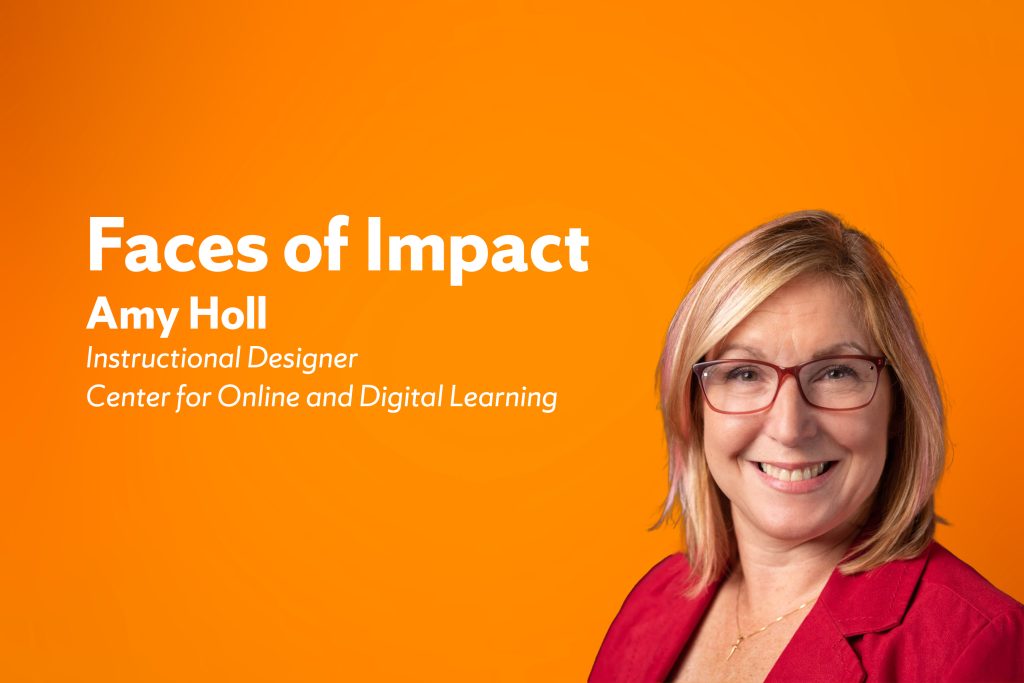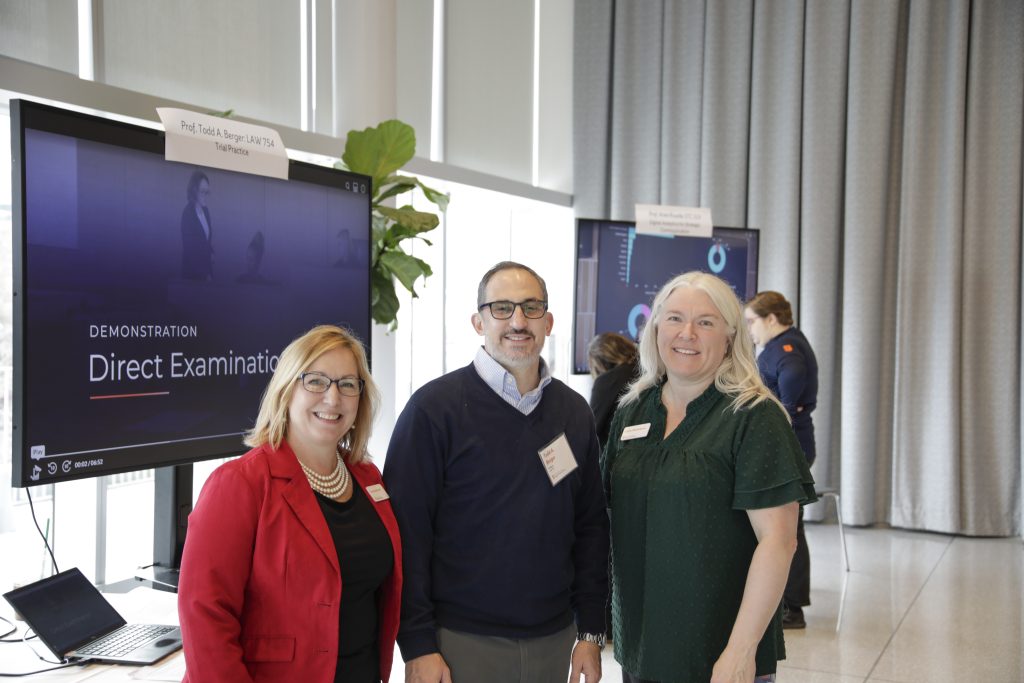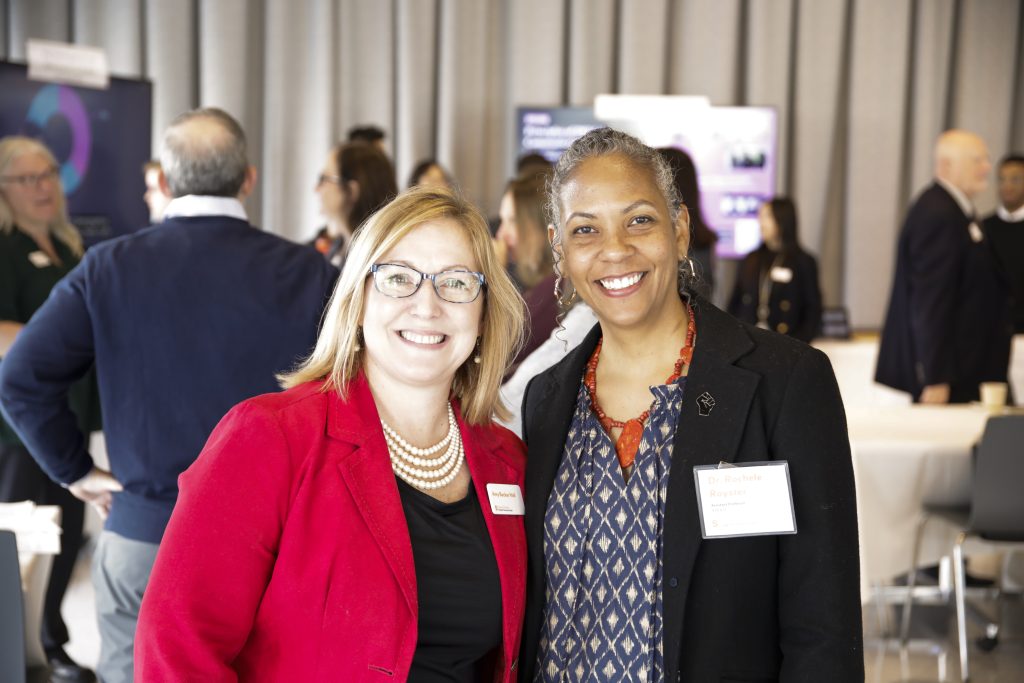
In this edition of Faces of Impact, we spotlight Amy Holl, an instructional designer at Syracuse University’s Center for Online and Digital Learning.
With a deep commitment to inclusive, student-centered learning, Holl plays a pivotal role in shaping engaging and accessible online courses that meet the needs of a diverse, global student body. Her work exemplifies the College of Professional Studies’ mission to provide flexible, high-quality education that meets students where they are and helps them thrive.
What is your current role and what does it involve?
I am an instructional designer. I work with faculty (SME – Subject Matter Experts) and a team of colleagues to design and develop courses for online delivery across academic programs at Syracuse University.
In one sentence, how would you describe your department’s mission?
Our mission is to develop student-centered, engaging, rigorous, and inclusive learning opportunities for a diverse and global community of learners.
Why is instructional design an important part of the course development process?
Instructional design organizes course content and brings the course to life for the students.
Instructional designers use frameworks and ideas from learning theories like constructivism, andragogy, and experiential learning to design activities that help students connect concepts, ask questions, and build knowledge in ways that stay with them. When a course is thoughtfully designed, it’s easier for students to stay engaged, know what’s expected, and feel like the learning really matters.
Instructional design plays a vital role in creating meaningful learning environments that support how students learn most effectively.

In what ways does your team go above and beyond to serve online students?
Intentional, inclusive, and supportive course design is how our team goes above and beyond for online students. Students benefit from clear expectations, easy navigation, and engaging content that keeps them connected to their learning.
Every course is built with care, drawing on the deep expertise and creativity of our team to deliver high-quality learning opportunities with multimedia that supports student success. By focusing on best practices and listening and adapting, we make sure each student feels valued and equipped to succeed. We also prioritize authentic and inclusive pedagogy by designing for diverse learning preferences and encouraging adaptive strategies that help students meet complex learning goals.
How do you collaborate with faculty or subject matter experts during the instructional design process?
Planning Together: We meet with faculty throughout the process to talk through course goals, delivery format, timelines, aligning learning objectives with activities and student needs. This helps faculty think through how their content can be structured to support different learning preferences and students from varied backgrounds.
Rethinking Assignments: In collaboration with faculty, we redesign assignments to be more inclusive and flexible, allowing students to create materials that are relevant to their professional goals. We design course content that is relevant, engaging, and structured to support online and non-traditional learners in accessing and understanding material with ease. Our approach emphasizes authentic learning and supports the development of adaptive strategies that help students navigate complex tasks, build confidence, and apply their knowledge in real-world contexts.
Targeting Student Needs: We work closely with faculty to identify assignments and activities that meet the objectives for the course and also the needs of diverse online learners, including adult students, working professionals, caregivers, military-affiliated learners, and others balancing education with competing responsibilities. Our team offers flexible alternatives to traditional assessments and delivery formats that still meet learning outcomes while providing more choice and accessibility. For example, instead of a timed exam, we might suggest students create a podcast, video, or infographic that demonstrates their mastery of course content in a way that aligns with their professional goals and lived experiences.

How do you approach designing online courses to ensure they’re accessible to all learners?
When designing online courses, I prioritize inclusive pedagogy to ensure all learners feel welcomed and supported. This approach is grounded in key principles such as equity, accessibility, representation, flexibility, and empowerment, which guide every aspect of course development, from content creation to interaction and assessment design.
In our courses we ensure we use alt text for images, captioning and transcripts for media, clear and consistent navigation, high-contrast colors and readable fonts, keyboard-accessible interactions, chunked content with clear headings, flexible assignment formats, and accessible documents that work seamlessly with assistive technologies. Using inclusive pedagogy, we actively seek to create learning environments where all students feel valued, respected, and supported, regardless of their backgrounds, identities, or abilities.
As I work on courses, I want the materials to be thoughtful, artful, and impactful. Additionally, I want students to see themselves reflected in the content and feel that their personal perspectives and contributions are acknowledged and valued.
What makes the College of Professional Studies stand out as a leading environment for teaching and learning?
We have the finest committed, caring and passionate team members that are student-centered. The College of Professional Studies stands out as a leading environment for teaching and learning because of its strong commitment to access, inclusion, and innovation.
Under the leadership of Dean Michael Frasciello, the College empowers diverse learners, including part-time and nontraditional students, through flexible, future-focused programs that combine academic excellence with real-world relevance. The College’s student-centered approach includes personalized support, interdisciplinary degrees, and high-quality online and on-campus options designed to meet learners where they are and help them succeed on their own terms.
My Personal Commitment: As a first-generation college graduate and passionate instructional designer, I am deeply committed to creating inclusive, student-centered online learning environments that support the educational needs and aspirations of diverse learners. I look forward to continuing this work in ways that have a meaningful impact on our students.
